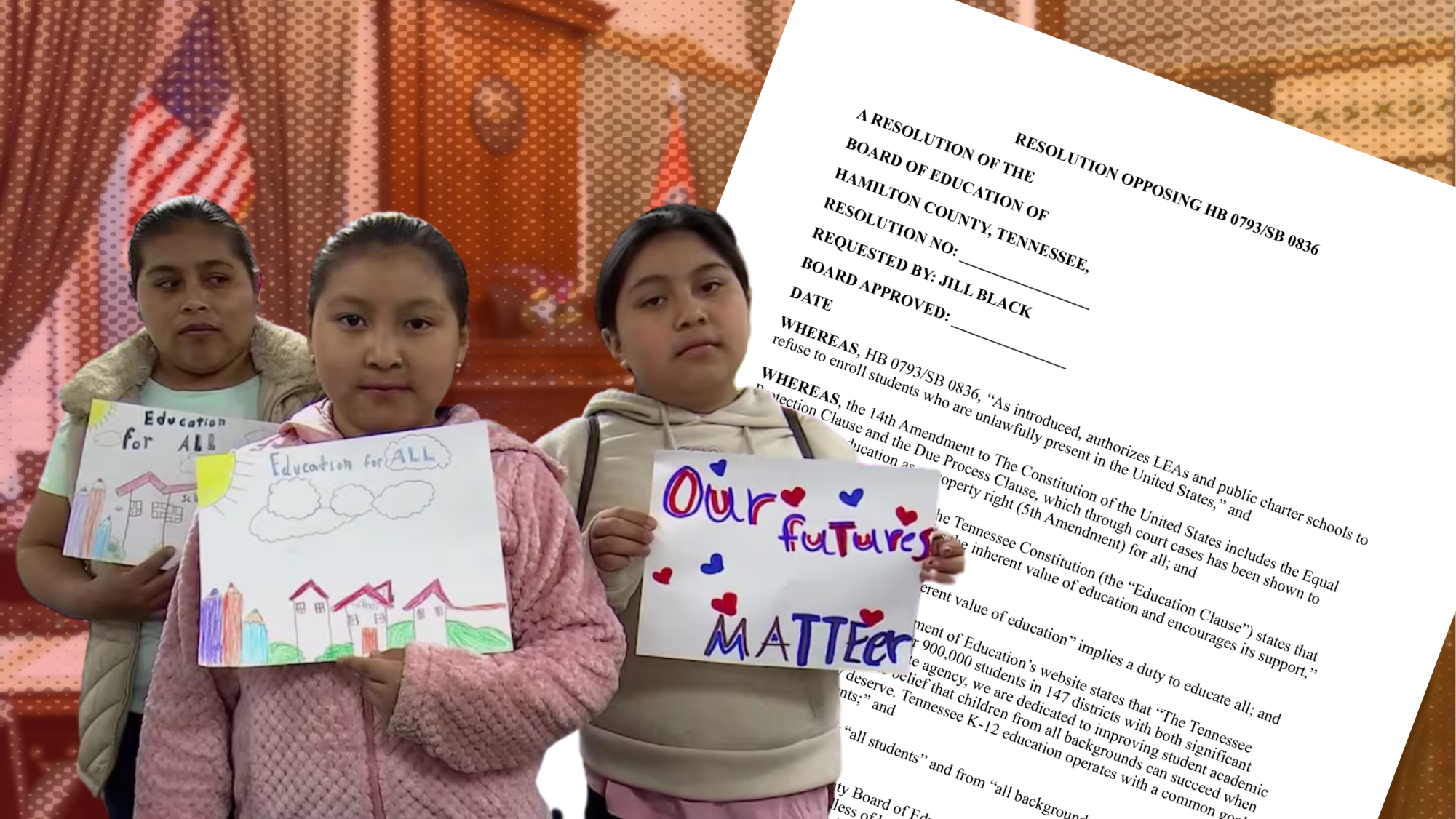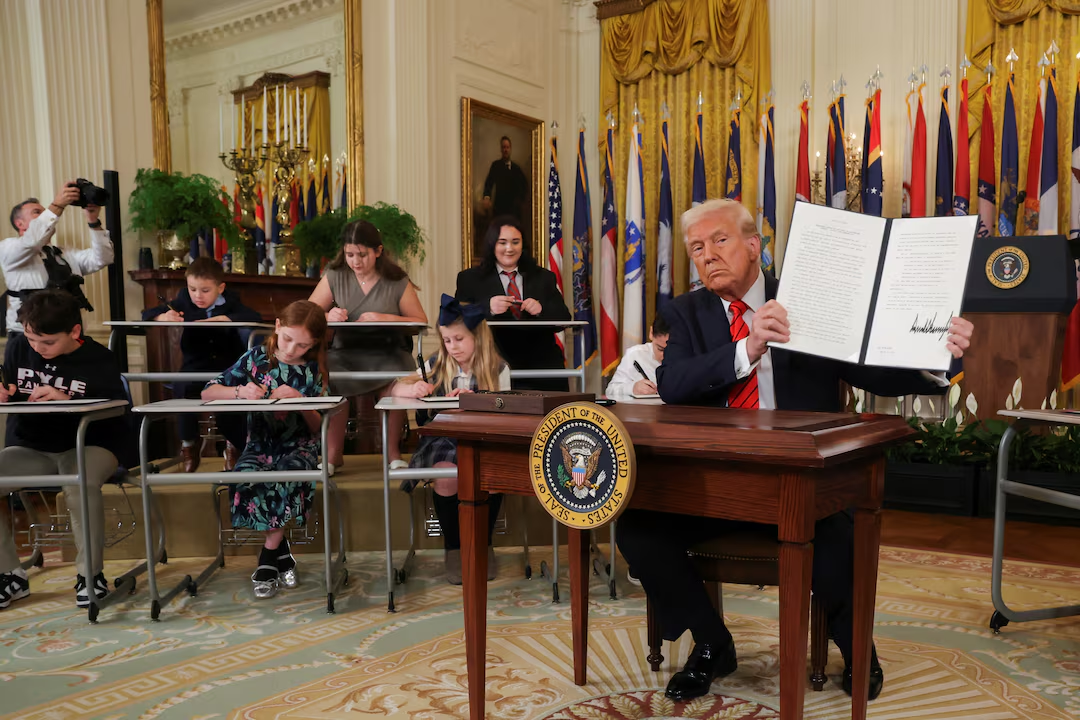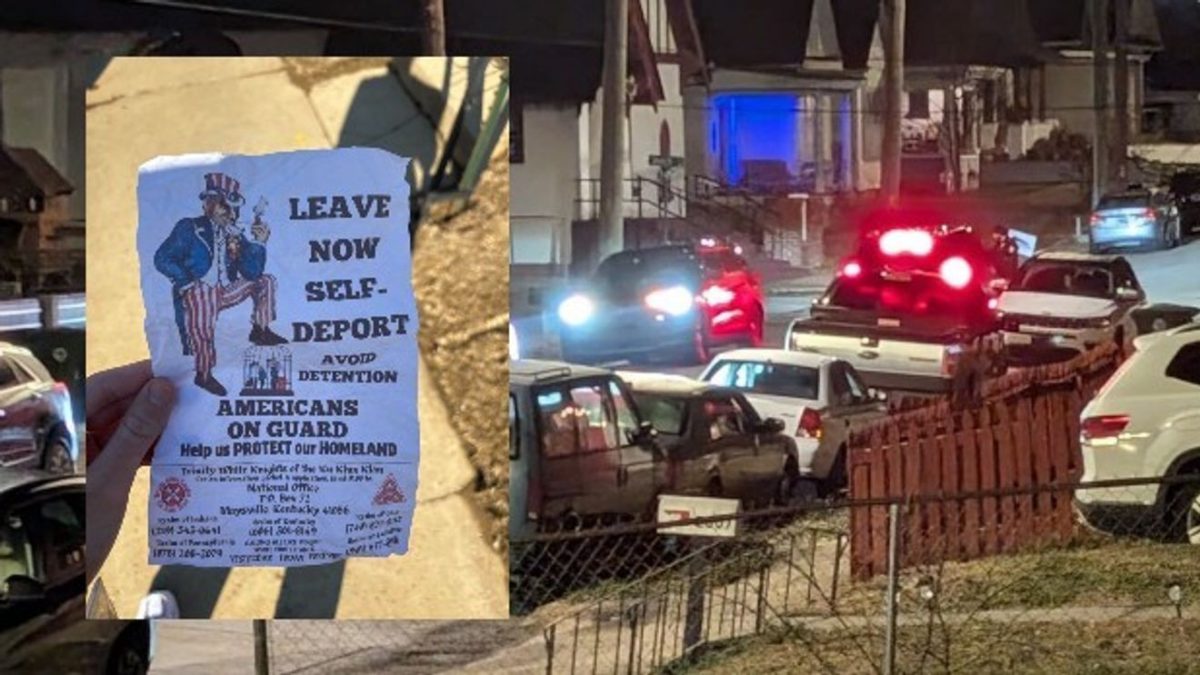In 1982, the Supreme Court ruled in Plyler v. Doe that students cannot be denied an education solely because of their immigration status. However, this ruling has been challenged after the Tennessee Senate passed Bo Watson’s bill to do just that.
Bill 836 would allow all public and charter schools to bar undocumented immigrants from attending without paid tuition, costing around 10,000 students their educational rights.
The Hamilton County Principal Association condemned the bill earlier this month, in a statement saying, “Our schools are not only institutions of learning— they are the heart of our neighborhoods, and they reflect our shared values of inclusion, dignity, and opportunity for all.”
The Hamilton County School Board is fighting back against the bill after passing its own resolution earlier today with a vote of 8-0 and 3 abstaining. Board member Jill Black says, “…when we say for ‘all students’ and from ‘all backgrounds,’ we must mean all, and not just some…. The just cause of Hamilton County Schools is that all children thrive and experience a future without limits.”
The bill reflects the Trump Administration’s “common-sense” approach to education and immigration in the country. Following the dismantling of the Department of Education, many students and educators alike are worried, fearing the loss of vital funding and loans.
States like Texas and Idaho are weighing similar policies. In the past, states have used Tennessee as a testing ground, closely watching the effects of new laws and bills before passing their own. After passing the ‘Adult Entertainment Act,’ which bans drag shows deemed “harmful to minors,” other states have proposed or passed similar bills, including Texas, Florida, Kentucky, Idaho, and Oklahoma.
Bill 836 is likely to pass the Tennessee House of Representatives in the coming days. And if it passes and is signed into law by Governor Bill Lee, Tennessee would become the first state to bar students with certain legal statuses from attending public schools, breaking a ruling made by the Supreme Court.







